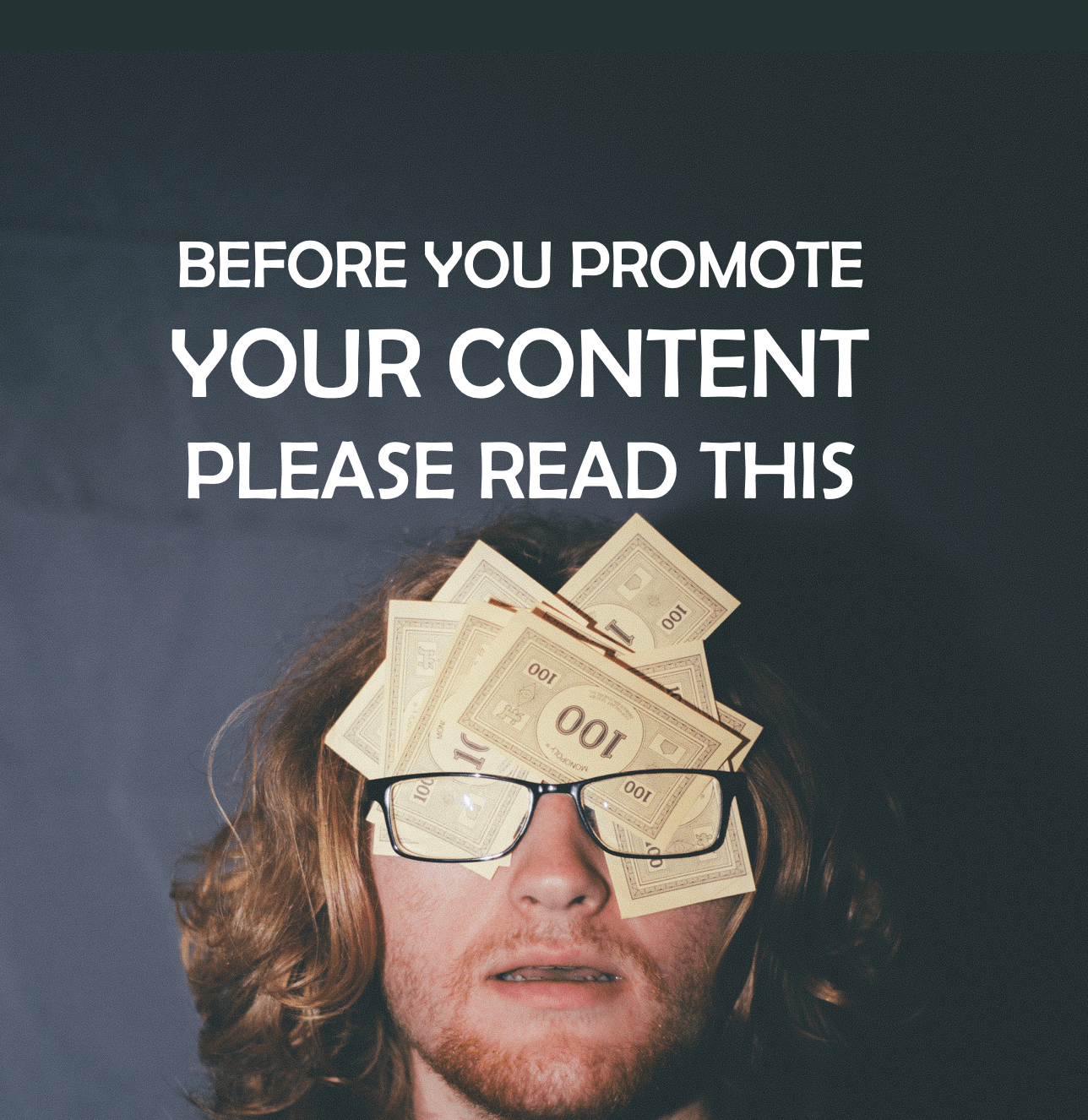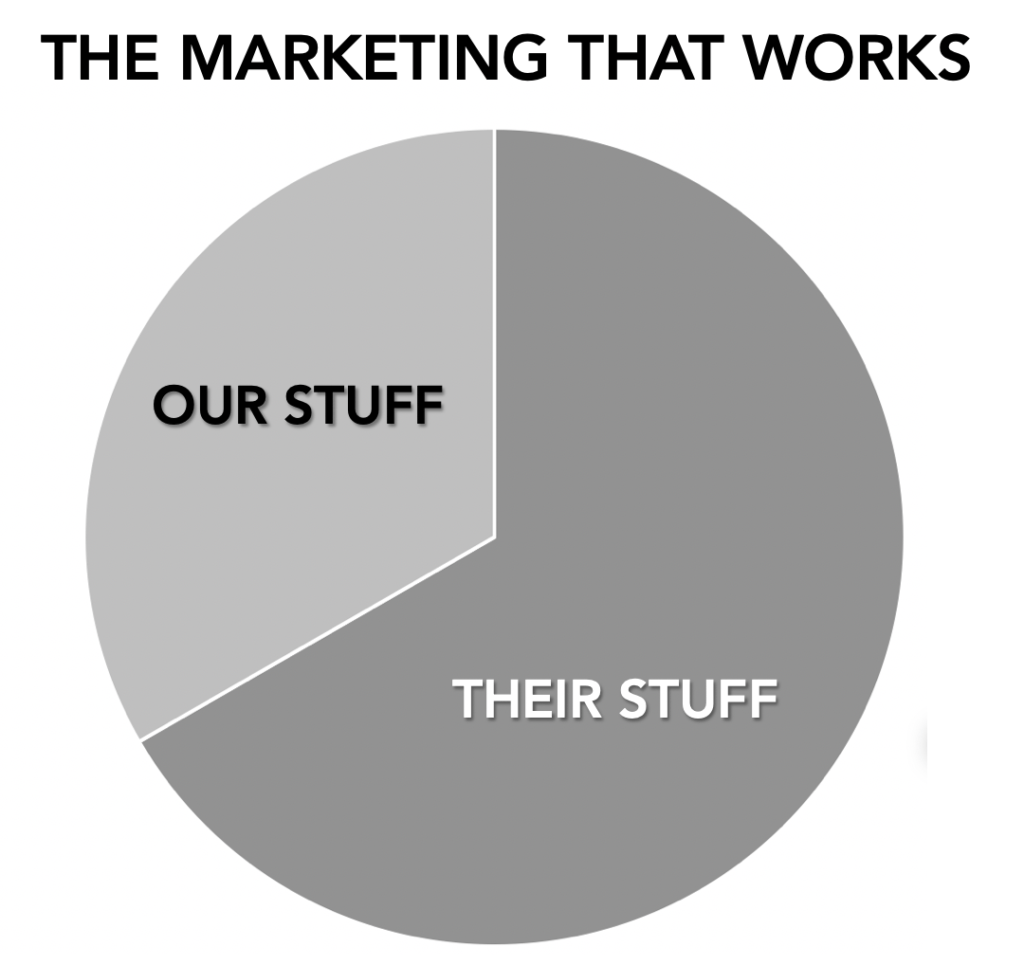
By Mark Schaefer
“It’s not the best content that wins. It’s the best promoted content that wins.
Andy Crestodina is one of the people I admire most in this marketing space. He is brilliant, articulate, and kind. His Content Chemistry book is a masterpiece.
But like even the best of friends, we disagree from time to time, and he encouraged me to disagree with him today, which I will do with gusto.
Let’s start with the rest of the quote from Andy:
“It’s not the best content that wins. It’s the best promoted content that wins.
“The New York Times doesn’t have a list of the best books. They have a list of the ‘best selling’ books. That list is about sales, not quality.
“Sadly, you’ll never find the best article on any topic. You’ll only find the articles that were well promoted. The articles that got traction in search, social or word-of-mouth. You’ll never read the best books or hear the best songs. You’ll find only those that were both good and well promoted.
“It’s the marketers job to promote the best work. To share, link to, send and talk about the good things. It’s the only chance we have to bring the best to the most.”
Andy implies that there’s no value in content alone. It has to do something … move through your customers and potential customers for it to work. On this we entirely agree. In fact I believe in this so much, I wrote an entire book on strategies to get content to move through an audience called The Content Code (which includes a chapter on promotion).
But the part of Andy’s quote that makes me stumble is “The list is about sales, not quality.”
There are some situations where quantity is more important than quality, but 95 percent of the time, creating content and promoting it is not enough. The content has to be spectacular. Here’s why:
You can’t trick your customers
Andy’s quote suggests that simply promoting content might be enough to make it successful.
You might be able to promote your content in a way that it compels somebody to click on a link. But spending money to boost a post cannot compel anybody to read it or share it. For people to actually consume the content and share it — your only goal — you have to produce something that’s share-worthy. If the content isn’t good enough to share, you’re wasting your promotional dollars.
Relevant, consistent, superior
In my college classes, I’ve taught that shareable content must be “RITE:” Relevant, Interesting, Timely, and Entertaining.
Over the years, I’ve amended that somewhat to emphasize Relevant, Consistent and Superior.
- Relevant — Stay tuned to the needs of your audience and serve them with generosity.
- Consistent — Ideally, you want to become a habit for your audience. Consistency conditions an audience to look forward to your content and of course this has SEO benefits, too.
- Superior — In a recent post, I explained why content in any niche must always be superior because the switching costs are so low. The attention span of your audience is precious and limited. You need to fight hard to earn the attention through constant improvement. You don’t have to be “Game of Thrones,” but you have to be the “Game of Thrones” in your category — something that is insanely great compared to your competitors.
Simply creating and promoting content without tending to these three considerations would be a waste of your time and money.
Your customers are your marketers
Technically, Andy is correct — You could probably buy your way on to The New York Times bestseller list. Certainly weird, but true.
However, with a book or any other form of content, your long-term success increasingly depends on authentic and organic advocacy from your readers, listeners, and viewers. What happens to an author when the book sucks? Negative reviews. Will they share it? No. Will they buy your next one? No.
To win in marketing today, we must adopt an entirely new mindset. Two-thirds of our marketing is NOT our marketing. It’s coming from our audience who are talking about us, referring us, and leaving reviews:

This data comes from seminal research conducted by McKinsey analyzing more than 125,000 customer journeys across 30 industries. Here’s the uneasy truth about this new reality. See that big slice of the pie chart? You can’t buy your way in. You can’t promote your way in, you can’t SEO your way in, you can’t tweet your way in.
You have to be invited.
And once you’re invited, something magical happens. Your company’s traditional marketing efforts can stop because your customers become your marketers. They carry your story forward.
How does that happen? How do we get invited?
Isn’t that the single most important topic we could be asking today? Shouldn’t every marketer on earth be obsessed with that goal?
I believe it is … which is why that is the topic of my forthcoming book, Marketing Rebellion, which will be available in February.
Oh my goodness. I am such a tease.
 Mark Schaefer is the chief blogger for this site, executive director of Schaefer Marketing Solutions, and the author of several best-selling digital marketing books. He is an acclaimed keynote speaker, college educator, and business consultant. The Marketing Companion podcast is among the top business podcasts in the world. Contact Mark to have him speak to your company event or conference soon.
Mark Schaefer is the chief blogger for this site, executive director of Schaefer Marketing Solutions, and the author of several best-selling digital marketing books. He is an acclaimed keynote speaker, college educator, and business consultant. The Marketing Companion podcast is among the top business podcasts in the world. Contact Mark to have him speak to your company event or conference soon.
Illustration courtesy Unsplash.com
Book links are affiliate links.


